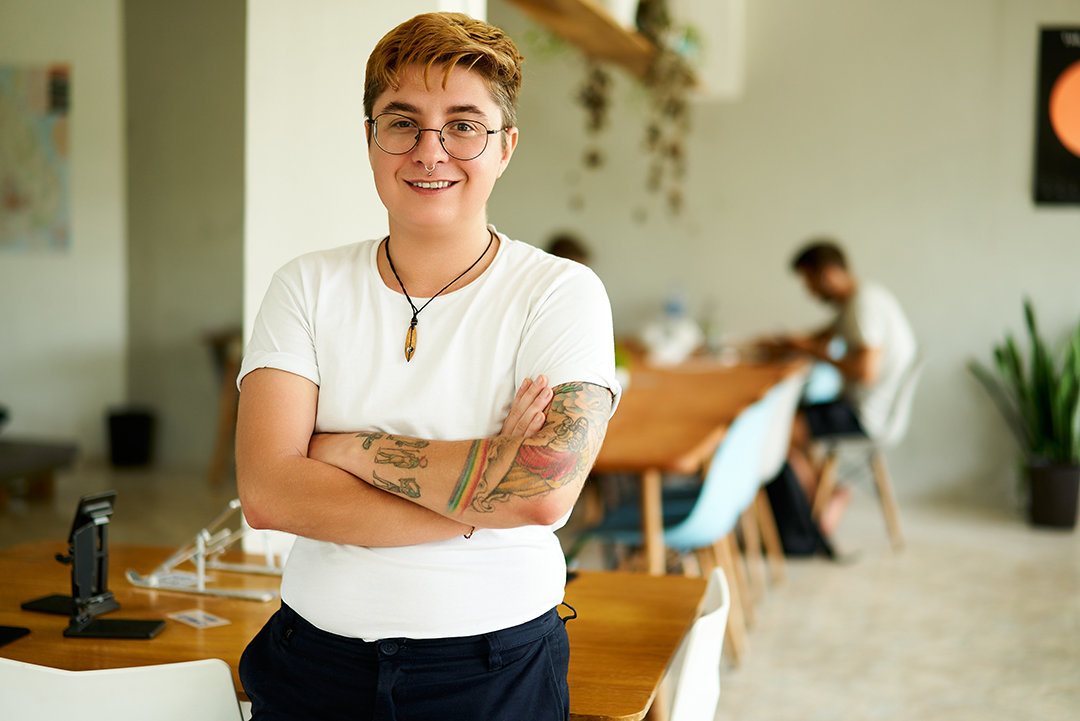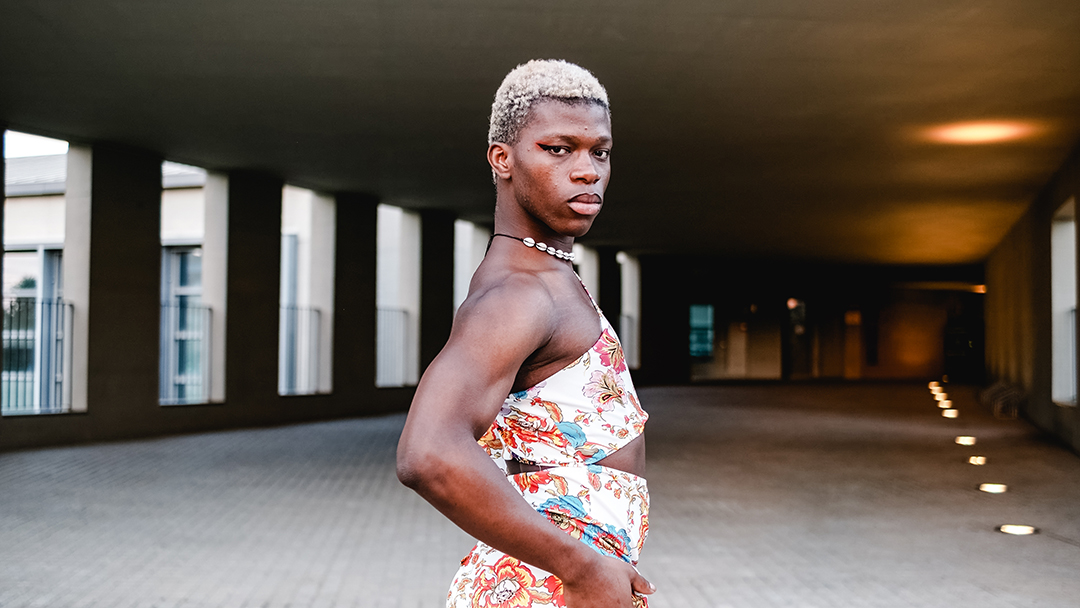A brand new intervention designed to information mother and father and carers in navigating gender identification and fostering supportive relationships.
Quick abstract
A brand new community-based participatory examine highlights the significance of household help in enhancing psychological well being outcomes for transgender and nonbinary youth. Co-created digital tales reveal how open communication, shared reflection, and inclusive household involvement can scale back isolation, foster empathy, and construct stronger connections. The end result is a versatile toolkit designed for each professionals and caregivers.
How Household Help Shapes Trans Youth Wellbeing
Transgender and nonbinary youth (TNBY) face increased charges of hysteria, melancholy, and self-harm in comparison with their cisgender friends (Wittlin, Kuper, & Olson, 2023). These disparities are largely pushed by experiences of minority stress, together with social rejection and stigma (Rood et al., 2016; Reed, 2024).
Amid this difficult panorama, household help stays one of many strongest protecting components, by way of emotional presence, reliability, and lively involvement within the younger particular person’s wellbeing (Westwater, Riley, & Peterson, 2019). However what if households wish to help their TNBY and easily don’t understand how? What approaches can information the transition from uncertainty and concern to deeper connection and significant motion?

Household help performs a key position in decreasing psychological well being dangers for transgender and nonbinary youth.
A toolkit rooted in actual tales and actual lives
A latest examine by Katz-Smart and colleagues (2024) addresses this query by growing a family-level, sensible, and relationship-focused intervention. The Trans Teen and Household Narratives (TTFN) Dialog Toolkit is a free on-line useful resource to assist households have extra open and considerate conversations about gender.
At its core are eight digital tales, co-created by TNBY aged 15-21, that discover themes similar to identification, custom, religion, rejection, incapacity, and chosen household. Every story is paired with a dialogue information and extra assets tailor-made both for households or for psychological well being professionals (MHPs).
“Generally, it will get actually lonely. Assembly you guys type of makes me really feel much less alone. Like I’ve a household on the market… and I type of don’t need it to finish.”
— Younger participant, digital storytelling workshop
This mission was constructed utilizing a community-based participatory analysis mannequin. TNBY, caregivers, siblings, and professionals have been all concerned in designing, reviewing, and refining the toolkit. Their enter formed each part, from content material choice to closing usability.
The result’s a useful resource grounded in each proof and lived expertise. Reasonably than providing prescriptive solutions, the toolkit fosters reflection, listening, and trust-building by way of dialog.

Co-created digital tales assist households have interaction in significant conversations about gender identification.
Assembly households the place they’re
What makes the TTFN Toolkit particularly impactful is the way it meets households the place they’re. Throughout focus teams, caregivers usually shared how relatable the tales have been and the way a lot they wished that they had had entry to such a useful resource earlier of their journey.
“You guys simply actually hit the nail on the pinnacle with all of those subjects. I’d have cherished to have seen that video day one.”
— Dad or mum of a trans youth
Siblings additionally mirrored on the necessity for help of their position, particularly when navigating peer conversations or household dynamics. TNBY appreciated the variety of identities and experiences mirrored within the tales, but additionally known as for continued efforts to characterize voices usually disregarded, together with youth of color, neurodiverse youth, and people from much less accepting environments.
Clinicians within the examine highlighted how the toolkit could possibly be used flexibly in periods or shared with prolonged members of the family, particularly when direct engagement is tough.

“When my brother was beginning to come out, I used to be like, ‘This isn’t the best way it’s alleged to be,’ simply because I had solely been uncovered to at least one particular person having this one expertise.”
— Sibling of a trans boy, focus group participant
The toolkit was designed to be non-linear and adaptable, permitting households to apply it to their very own or as a part of a therapeutic course of. Reasonably than prescribing how one ought to really feel or act, the tales mannequin real-life trajectories of complexity, progress, and alter. Some start with ache or confusion and transfer towards moments of connection. These narratives can function a worthwhile instrument to help scientific work, fostering joint reflection between younger individuals, households, and professionals.
Trying forward
The TTFN Toolkit highlights the potential of narrative-based, co-produced assets to satisfy the true wants of households with transgender and nonbinary youth. As households, clinicians, and younger individuals proceed to make use of the toolkit, members within the examine have already recognized significant instructions for future growth. These embrace increasing the vary of tales to mirror a wider range of experiences, similar to these of caregivers, siblings, neurodiverse youth, and people from communities with restricted help or understanding. There’s additionally rising curiosity in adapting the toolkit for broader functions, together with school-based schooling, neighborhood help programmes, and telehealth.
Katz-Smart and colleagues additionally word the necessity for additional analysis of the toolkit’s effectiveness in enhancing communication, fostering acceptance, and decreasing minority stress in households. The method of co-developing the intervention itself, by way of workshops, interviews, and collaborative design, was described as useful by many members. This means that participatory strategies can serve not solely as a method to construct higher instruments, but additionally as an intervention in their very own proper.

Future growth of the toolkit will deal with better inclusivity, broader functions, and formal analysis
Conclusions
The TTFN Toolkit exemplifies how inclusive, evidence-informed interventions can help particular person households and the broader techniques wherein they reside. By integrating digital storytelling with structured steering, the useful resource creates area for households to discover, mirror, and develop collectively—whether or not at house, in remedy, or inside prolonged networks of care.
Methodologically, the mission underscores the worth of moral reflexivity, collaborative design, and safeguarding all through the event of psychological well being instruments. In a context marked by stigma and sociopolitical pressures, these practices provide a mannequin for a way analysis and lived expertise can come collectively to provide instruments that aren’t solely helpful however transformative.

The TTFN Toolkit bridges analysis and lived expertise to assist households help TNBY extra successfully.
The place subsequent?
This convention, led by Sabra L. Katz-Smart, PhD, explains how household environments form the psychological well being of transgender and nonbinary youth. As Director of the SOGIE Well being Fairness Analysis Collaborative and GenderWise Lab, Sabra L. Katz-Smart, PhD, is a number one researcher on LGBTQ+ well being and household functioning.
This session will current key findings from the NIH-funded Trans Teen and Household Narratives Challenge, a longitudinal, community-engaged examine exploring how household dynamics impression youth well-being. Attendees can even acquire insights right into a family-level intervention designed to help households in fostering affirming, wholesome relationships.
Use the interactive programme under to realize an summary of the subject, meet the speaker, check your information, and a complete lot extra!
NB this weblog has been peer-reviewed
References
Katz-Smart, S. L., Godwin, E. G., Medzhitova, Y., Moore, L. B. M., Parsa, N., Hill, A., Oparah, N., Bogart, L. M., Rosal, M. C., Pullen Sansfaçon, A., Ehrensaft, D., Nishman, M. M., & Austin, S. B. (2024). Growth of a family-level intervention for households with transgender and/or nonbinary youth: Classes and proposals. Journal of Household Psychology. Advance on-line publication. https://doi.org/10.1037/fam0001262
Reed, E. (2024, Might 1). Anti-trans legislative threat evaluation map; Might 2024 replace. Erin within the Morning. https://www.erininthemorning.com/p/anti-trans-legislative-risk-assessment-43a
Rood, B.A., Reisner, S. L., Surace, F. I., Puckett, J. A., Maroney, M. R.,& Pantalone, D. W. (2016). Anticipating rejection: Understanding the minority stress experiences of transgender and gender-nonconforming people. Transgender Well being, 1(1), 151–164. https://doi.org/10.1089/trgh.2016.0012
StoryCenter. (n.d.). Moral apply. Retrieved October 4, 2023, from https://static1.squarespace.com/static/55368c08e4b0d419e1c011f7/t/579134a05016e13dde264720/1469133984611/Ethics.pdf
Westwater, J. J., Riley, E. A., & Peterson, G. M. (2019). What concerning the household in youth gender range? A literature assessment. Worldwide Journal of Transgenderism, 20(4), 351–370. https://doi.org/10.1080/15532739.2019.1652130
Wittlin, N. M., Kuper, L. E., & Olson, Okay. R. (2023). Psychological well being of transgender and gender numerous youth. Annual Evaluation of Scientific Psychology, 19(1), 207–232. https://doi.org/10.1146/annurev-clinpsy-072220-020326


